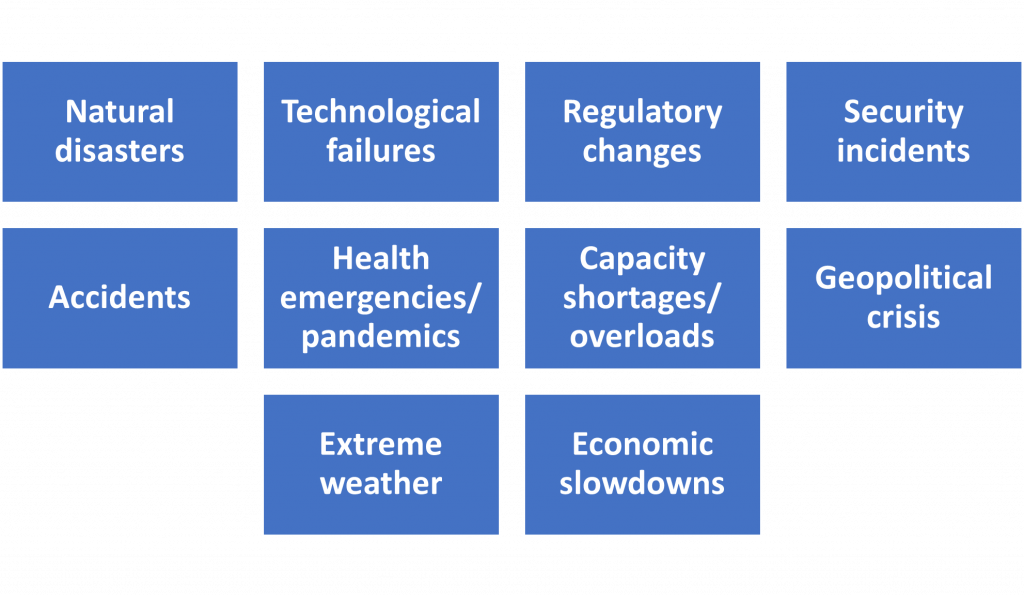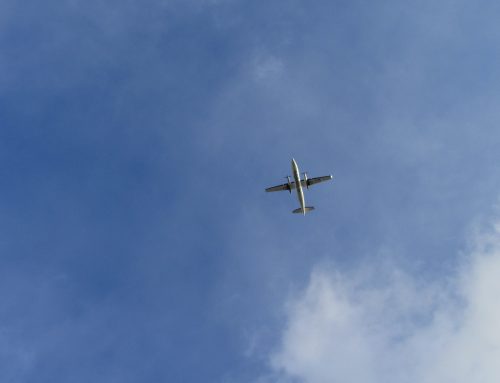By Ketki Kulkarni
Postdoctoral Researcher at HUMLOG Institute
The transport network in Europe is facing severe and frequent disruptions due to the dynamic geo-political situation in the region as well as the aftereffects of climate change. The EU Horizon project ReMuNet (Resilient Multimodal Transport Networks) is focused on improving the resilience of the transport network considering alternate routing options and identifying disruptions and ways to mitigate their effects.
As a first step in this research, the team at HUMLOG Institute is conducting a detailed qualitative study to 1) define disruptions from the perspective of logistics operators and key stakeholders, 2) to identify the frequently occurring and severe disruptions and 3) to understand standard practices of managing these disruptions. A series of interviews (1 hour each) are ongoing, involving detailed discussions with infrastructure managers, logistics operators, government agencies, and other stakeholders in the EU transport network. The people represent different modes (links) and nodes of the transport chain including ports, inland waterway management, freight shipping handlers, network planners, terminal operators across rail, road, air, and waterway transport. The analysis of the interviews includes classification of disruptions based on severity of impact, cause, and length (time duration) of impact. The research also investigates the resilience of different modes of transport and estimates the stakeholder’s perception on their reliability.
Based on a preliminary analysis of the interviews conducted so far, it has been interesting to observe that different stakeholders view disruptions differently, depending on their perception of the transport network. For those working on network flows, disruptions were any blockage to the flow of people, material, or information. For some others responsible for delivering goods, disruptions were any events that caused a deviation from the set schedule. The discussion generated an engaging debate on whether a disruptive event needs to be unplanned (or unexpected) by definition. The upcoming report by the Hanken team presents the details of this analysis.
“If it is planned, it is not a disruption.”
“If it lasts too long, it is the new normal and no longer a disruption.”
Another viewpoint offered is that the duration of the disruption is critical in deciding whether it should still be considered a disruption event or should now be accepted as the new normal.
An important contribution of this analysis will be the compilation of different perspectives of disruptions of the various stakeholders in the multimodal EU transport network.
Apart from interviews, the research team also engaged with industry partners in the EU and masters’ students of a supply chain course at Hanken through focus group discussions on categories and root causes of disruptive events. Participants identified multiple disruptive events in the last 5 years in the EU and in small groups of 5-8 people, discussed the causes,
impact, and response for each event. At the end of the discussion, each group came up with a list of categories in which these disruptive events can be placed. Figure 1 shows the compiled results of these focus groups on categorization of disruptive events.

The eventual goal of this 3-year project is to build an AI-driven platform that helps transport planners identify safe and sustainable routes.

Two pilot case studies will be worked on: 1) the North Sea Baltic corridor case study for safe and timely delivery of humanitarian aid to Ukraine and 2) the Rhine-Danube corridor case study for sustainable transport in the EU.

The data from the qualitative study will help build the foundation for the AI-based platform, providing information for disruption modelling.

Ketki Kulkarni’s research interests include decision support for traffic networks, simulation, applied optimization and smart logistics. She is currently leading the HUMLOG team’s research in the EU Horizon project ReMuNet involving transport resilience for sustainability in the face of disruptions. She specializes in the use of advanced simulation software for industrial applications.
She has worked extensively in the Finnish marine transport domain for the last 5 years. She has obtained her PhD in Industrial Engineering and Operations Research from the Indian Institute of Technology Bombay. She is not only interested in contributing to the methodology literature, but also in developing efficient tools that are used by organizations for their daily operations. She finds packaging the research work into usable solutions exciting and challenging.




